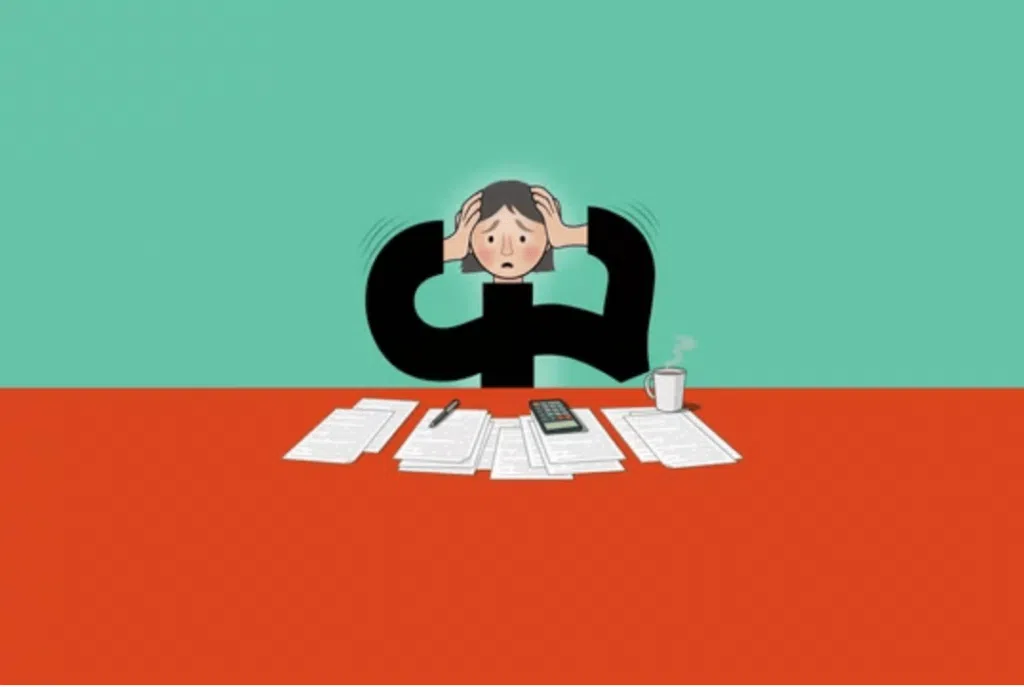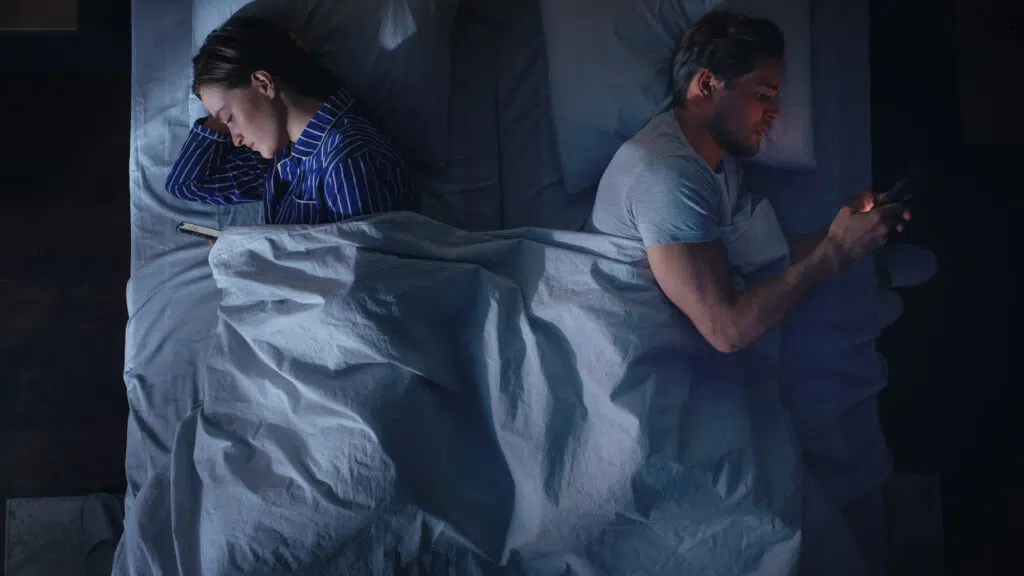How to Get Rid of Anxiety (Trick Question, You Can’t!)

Anxiety has a purpose; it can help you respond to danger in moments of need. But if you have intense and frequent anxiety, it can really impact your quality of life.
Although anxiety can feel useless at times, those feelings and fear are there to protect you. The right amount of anxiety can even help you overcome a challenge. However, unchecked anxiety can wreak havoc on your life.
So, how do you get rid of anxiety?
Anxiety and fear are part of human survival, and you can’t remove them entirely. But you can find ways to reduce and manage anxiety so that it impacts your life less.
Dr. Tirrell De Gannes, Licensed Clinical Psychologist in New York, explains, “Like all emotions, anxiety serves a purpose, and it is temporary. I can’t promise a complete removal of anxiety, but I promise to give you the tools to lessen your anxiety and work with you to make it less distressing to deal with when it comes up.”
What is Anxiety?
Over 40 million adults in the US have an anxiety disorder. Occasional anxiety is a normal part of modern life. Money worries, health, work, and family problems can all create anxiety. However, anxiety disorders are more than temporary feelings of anxiety or worry. For people with an anxiety disorder, the feeling doesn’t go away, and it can get worse as time goes by.
Year one of the pandemic saw an increase of almost a quarter in anxiety and depressive disorders worldwide. Nearly half of those diagnosed with depression are also diagnosed with anxiety. A person with depression tends to worry a lot about the judgment of others, which can lead to anxiety, fear of judgment, and very unkind thoughts about themselves.
Anxiety is the body’s natural response to stress, and a range of factors can trigger it. Not only can triggers change, but the way it presents in people can also vary massively. There’s a difference between feeling anxious about a new job and feeling uncontrollable anxiety.
Accepting Your Anxiety
It’s completely normal to want to avoid feeling anxious. Anxiety creates an unpleasant feeling, to say the least. Typically, it’s not the feeling of anxiety that’s the problem, but the behavior that you create to avoid feeling anxious.
For example, say that you feel anxious when going to a social event. To avoid feeling anxious, you cut out social events and seeing people. An anxiety disorder can actually come from avoiding anxiety.
While avoidance can bring a feeling of immediate relief to your anxiety, you may notice other unwanted emotions like guilt and frustration in the long run. If worry forces you to avoid certain people, situations, or activities, it could be a sign to focus on more proactive strategies for dealing with anxiety.
One of the first steps in managing anxiety, and maybe even the hardest, is learning to accept it. It’s about moving forward and doing things in life that you enjoy, even if you feel anxiety. By accepting those feelings and knowing that it’s okay to feel that way, the effect anxiety has on your life will be less.
6 Ways to Reduce and Manage Anxiety
While you can’t get rid of anxiety from the face of the earth, you can learn to accept anxiety and find a strategy that works for you. Here are six ways to manage anxiety to feel calmer and reduce the effect that anxiety has on your life.
Regular Exercise
Exercise’s effects on mental health are well-known and proven. Regular exercise can help combat anxiety and depression by releasing feel-good endorphins. Endorphins are natural brain chemicals that enhance your sense of well-being.
Taking part in exercise can also help distract you from the thing you’re anxious about. When you move your body, it helps to release muscle tension, get your heart rate up, and build up resilience to uncomfortable emotions.
Limit Caffeine Use
Too much caffeine can stimulate your “flight or fight” response which could make anxiety worse. It can make you feel on edge and alert.
You don’t necessarily need to cut out caffeine altogether. Just be mindful of how much you’re having and be aware of how it makes you feel. Caffeine can impact people very differently. One person may not really notice any effects, while another could experience a rapid heart rate and an increase in anxiety.
Prioritize Sleep
Sleep and anxiety have a complex relationship. Strong evidence suggests that sleep problems are not only a symptom of anxiety but can worsen anxiety disorders. Poor sleep is known to affect both mood and emotional health.
The problem is that excess anxiety and worry can make it harder to fall and stay asleep. At the same time, a lack of sleep can make anxiety symptoms worse and create an awful cycle of insomnia and anxiety.
If you’re experiencing persistent sleep problems, whether it’s due to anxiety or not, it’s important to speak with your doctor who can devise a treatment plan. One approach to lessening the effects anxiety has on you is through therapy and speaking with a clinical psychologist.
Acceptance and Commitment Therapy (ACT)
Dr. Tirell De Gannes says that “anxious feelings often indicate a lack of comfort. I often find anxious feelings indicate a pattern of avoidance that can be addressed.”
When you start researching how to get rid of anxiety, you may come across exposure therapy. The idea is that you confront what makes you feel anxious little by little in a controlled and safe environment.
Acceptance and commitment therapy (ACT) doesn’t just focus on exposure to negative experiences. Instead, the thinking behind ACT is that you focus on accepting what is out of your control and learning to develop the skills you need to enrich your life.
With ACT, you focus on accepting problematic thoughts and committing to actions that help you to create a better life. It’s about embracing your feelings instead of fighting them. You approach your anxiety from a loving place to create a connection with your values.
Cognitive Behavioral Therapy (CBT)
One of the most common types of structured therapy is cognitive behavioral therapy (CBT). Essentially, CBT is a type of talking therapy that can help you make sense of overwhelming problems. It focuses on how your thoughts and beliefs affect your actions and feelings.
Changing how you think about certain situations can impact how you feel. A large amount of research shows that CBT is effective in treating anxiety disorders, including posttraumatic stress disorder and obsessive-compulsive disorder.
Relaxation Techniques
Dr. Tirrell De Gannes recommends “practicing different deep breathing techniques. Remind yourself that anxiety will always pass, you’ve had anxiety before, and come out of it, you will again.”
Sometimes it feels like taking a deep breath isn’t going to cut it when you feel utterly overwhelmed. But research shows that well-being interventions like deep breathing exercises can help with anxiety. As you breathe slower, it can help to tell your nervous system to calm down.
Deep breathing or diaphragmatic breathing slows the heartbeat, encourages a full oxygen exchange, and lowers blood pressure.
When to Speak to a Therapist for Anxiety
“Anyone can benefit from assistance with anxiety. Same as with a physical injury, if you feel it, you can benefit from assistance from a professional, but if you get to a point that your anxiety is affecting other aspects of your life like relationships or work, that’s an ideal time to find a therapist,” says Dr. Tirrell De Gannes
Anxiety is a normal part of human life, which can make it really hard to know when to seek help. If you find that anxiety interferes with your daily life, whatever it may look like for you, it could be time to speak to a mental health professional.
Try to take note of how you feel and act. Maybe you’re blowing up at a partner more often, feeling very irritable, or you’re experiencing constant fatigue; it could be a sign to speak to a therapist.
Speaking to a therapist can feel overwhelming in itself. Ultimately, the goal of therapy is to create a treatment plan around the troubles you’re having and to develop the skills you need to address the anxiety.

Sustaining Love: What to Do When the Honeymoon Phase Fades
There’s nothing quite like that initial attraction and spark where you just can’t get enough of your partner. But as the months and years roll on, it’s normal for relationships to transition through stages, and dynamics can shift.

All a Bad Dream? 1 in 4 Think Their Nightmares Predicted the Future
Americans have a lot on their minds. From navigating daily stress due to work or mental health to grappling with bigger widespread issues like politics, climate change, or crime, it’s safe to say there’s a lot to think about daily. For many, stressors aren’t only encroaching on their minds during waking hours, but also when they try to sleep in the form of nightmares, or bad dreams.

Psychological Challenges with Remote Working
While we can meet our loved ones in person without masks, the pandemic brought some changes that have stuck. Remote working has transformed the workforce. Some companies have chosen a fully remote approach, while others are welcoming their employees back to the office full-time.

Survey: 72% of Americans are Stressing About the Upcoming Presidential Election
Political viewpoints in the U.S. have always been contentious, but is the impact of politics in the United States making it difficult for people to live their everyday lives? With some anticipating another brutal and long campaign season ahead of the upcoming 2024 presidential election, nearly half of Americans say politics is negatively impacting their mental health.




